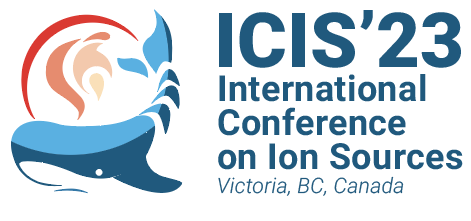Speaker
Description
The RF system of the TRIUMF electron cyclotron resonance ion source charge state booster (CSB) was recently upgraded for the implementation of two-frequency heating using a single waveguide. The injection and extraction optics as well as the injection and extraction systems of the CSB were systematically modelled and optimized. The quadrupole scan technique was developed for beam emittance measurement. The implementation of the two-frequency heating and systematic optimization were conducted to improve the efficiency and beam quality of the charge state booster. Under the single-frequency heating regime with well-optimized plasma and beam optics, the maximum charge state of 133Cs isotope that could be produced was 27+ with an efficiency of 1.5 % and the peak of the efficiency distribution was on Cs23+ with an efficiency of 8.8 % but with the two-frequency heating, the maximum charge state of cesium that could be produced shifted to 32+ with an efficiency of 0.02 % and the peak of the efficiency distribution shifted to Cs26+ with an efficiency of 9.1 %. For the tests with 238U isotope and under the single-frequency heating regime, the maximum charge state that could be produced was 36+ with an efficiency of 0.03 %. This could be improved to a 39+ charge state under the two-frequency heating with an efficiency of 0.02%. Although the peaks of the efficiency remain the same for both heating regimes at 28+, the efficiency of U28+ under the two-frequency heating regime was more than a factor of 2 higher. Another significant effect of the two-frequency heating on the CSB was that the total beam emittance was about a factor of 2 smaller than the total emittance measured under the single-frequency heating counterpart due to the increase in the electron energy most especially in the plasma core.
| Funding Agency | NSERC |
|---|---|
| Email Address | jadegun@triumf.ca |
| I have read the Code of Conduct to attend ICIS2023. | Yes |

